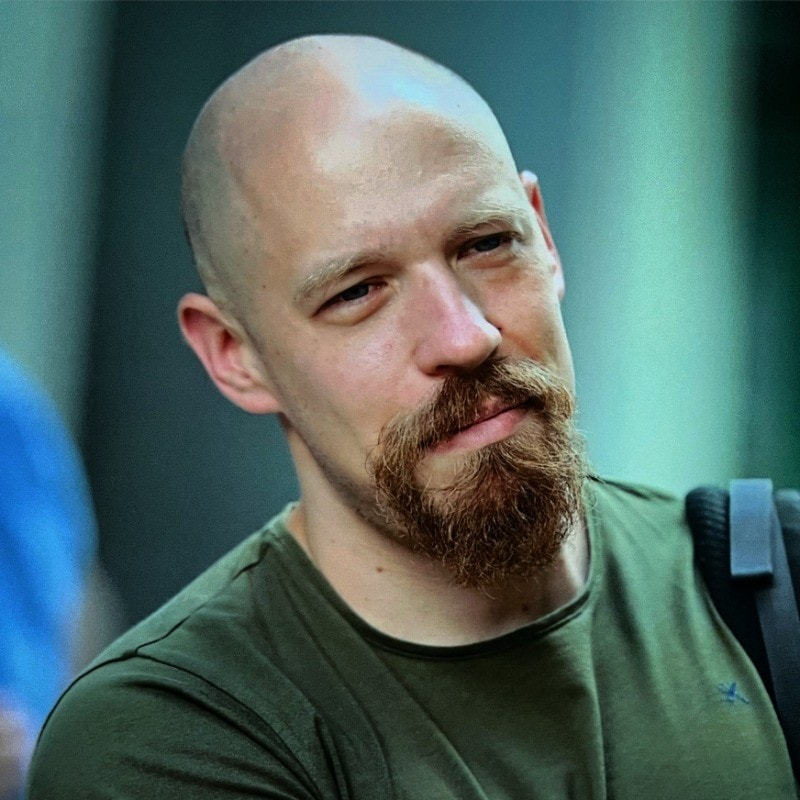Producer Steve Lillywhite, who has worked with some of the biggest names in rock music, recently explained why he doesn’t like music that’s heavy on power chords. Appearing in a recent edition of the “Produce Like a Pro” podcast, Steve went into more detail on why he isn’t fond of some of the very common practices in rock music.
Firstly, he pointed out how bands with more than one guitar player often tend to play the same exact thing and double it down. Which he, obviously, isn’t a great fan of. Lillywhite explained (transcript via Music Radar):
“There was never a moment when the two guitarists played the same thing. Very important – there was barely a powerchord in sight. It was lean.”
To go off on that, Lillywhite also pointed out that, despite this being a very controversial take, he feels like overusing power chords is just straight-up laziness. He continued:
“Because for me a power chord is laziness. Now that’s sort of controversial in itself, but square power chords on every bar in the chorus, for me is not art. You can get that power from something else.”
And it gets even worse if two guitar players are doing it at the same time:
“Especially when two guitarists are doing it. Look, there’s many successful bands who do that.”
Of course, Lillywhite isn’t all against the use of power chords. But he believes that they’ve been overused over the years. To give a good example of a guitar player writing a piece that includes power chords, he recalled The Edge of U2 and a particular song from an album he produced. In this case, it was kind of justified. Steve said:
“For instance, take The Edge. The Edge has only ever written one song with power chords because he thinks there’s probably only one song left to be written with power chords and that was ‘Vertigo.’ That’s the only song he’s ever written with power chords.”
The song “Vertigo” comes from U2 album “How to Dismantle an Atomic Bomb.” Released back in 2004, it’s one of the band’s albums that Lillywhite produced.
Going more into the matter, Lillywhite also explained how it’s important for a guitar player to be both a technically good performer and a “sonic sculptor.” He then added another somewhat controversial opinion regarding another famous guitar player:
“For me, probably the truly great players have both. For me, [Eric] Clapton’s great but one-dimensional because he was just a player…”
But to add an example of a guitarist who’s great at both, Lillywhite said:
“Brian May — he can do everything. He’s got all that but he was a sonic sculptor.”
Power chords are essentially what’s known as parallel fifths or consecutive fifths in music theory. Historically, having music with parallel fifths was often looked down upon by composers and other musicians. So this is something that was often avoided but is now very present in modern music.
Steve Lillywhite is one of the big names that you don’t often hear but his talents and skills can be heard on some of the most successful records out there. For instance, he has worked with the Dave Matthews Band, producing four of their albums, as well as the unofficially released “The Lillywhite Sessions” which was a scrapped record.
Other than that, Steve Lillywhite also produced four albums by U2. Apart from the aforementioned 2004 record “How to Dismantle an Atomic Bomb,” he was also at the helm when the band was making their first three studio albums, “Boy,” “October,” and “War.” He was also involved on some of the song on U2’s “The Joshua Tree,” “Achtung Baby,” “All That You Can’t Leave Behind,” “No Line on the Horizon” and “Songs of Experience.”
There’s also a long list of artists he collaborated with over the years. Lillywhite produced the 1986 album by The Rolling Stones “Dirty Work” and has also worked with Morrisey, The Smiths, Toyah, Phish, Peter Gabriel, and the Pogues just to name a few.
Earlier this year, U2 celebrated the 40th anniversary of their third album “War.” Released in February 1983, it was produced by Steve Lillywhite who also reflected on the album and its success during a recent interview with Guitar Player along with The Edge. Looking back at how he came up with “Sunday Bloody Sunday,” the guitarist said:
“It was instant. As much as you would imagine there’s a limit to the permutations and combinations, since there are only so many notes in the scale, when you hit on something that is essential, it’s kind of obvious.”
“You can have differences of opinion about sound and lots of stuff, but songs are sort of empirical. Some songs are just better than others, and it’s not really a matter of opinion. The same is true of riffs. ‘Sunday Bloody Sunday’ was an absolutely pivotal song for us.”
Photos: Philips Communications (Steve Lillywhite during interview), Elenaf (Power chord fondamentale sulla quinta corda)


